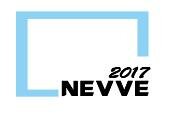Call for Applications: Informal Interactive Stakeholder Consultation for the United Nations General Assembly Special Session on the World Drug Problem

In April 2016, the United Nations General Assembly will hold a special session (UNGASS) to review the world drug problem and develop a roadmap for action. Civil society is a crucial partner in this process.
In preparation for the UNGASS in 2016, the President of the United Nations General Assembly, together with the Civil Society Task Force, are organising a one-day Informal Interactive Stakeholder Consultation on 10 February 2016 at the United Nations Headquarters in New York. The event constitutes another opportunity for stakeholders toshare practical expertise and experiences from their work on the ground as an input for consideration by Member States in the negotiations of the outcome document. It presents also an opportunity for stakeholders to prepare for their contributions to the interactive multi-stakeholder round tables at the UNGASS.
Those wishing to apply for speaker and moderator roles, are invited to apply using the forms at the links indicated below by 31 December 2015. The registration of participants is open until 13 January 2016. The travel costs for the speakers only will be covered by the organizers.
For any further information on this event, please contact the Civil Society Task Force on Drugs directly at.
______________________________
Mirella Dummar Frahi
Team leader
UNODC Civil Society Team
T. or
E. [email protected]
W. www.unodc.org/unodc/en/ngos/
______________________________
Call for Nomination: Informal Interactive Stakeholder Consultation for the United Nations General Assembly Special Session on the World Drug Problem (UNGASS 2016)
10 February 2016
United Nations Headquarters, NY
Deadlines:
- 31 December 2015: Apply for Speaking Roles
- 31 December 2015: Apply for Moderator Role
- 13 January 2016: General registration
Background
The General Assembly, in its resolution 67/193 of 20 December 2012, has decided to convene, in early 2016, a special session to review the progress made in the implementation of the Political Declaration and Plan of Action on International Cooperation towards an Integrated and Balanced Strategy to Counter the World Drug Problem, including an assessment of the achievements and challenges in countering the world drug problem, within the framework of the three international drug control conventions and other relevant United Nations instruments.
Furthermore, the General Assembly decided in resolution 69/200, that the special session shall have an inclusive preparatory process that includes extensive substantive consultations, allowing organs, entities and specialized agencies of the United Nations system, relevant international and regional organizations, civil society and other relevant stakeholders to fully contribute to the process, in accordance with relevant rules of procedure and established practice.
To that end, there will be an Informal Interactive Stakeholder Consultation for the United Nations General Assembly Special Session on the World Drug Problem (UNGASS 2016) on 10 February 2016 at the United Nations Headquarters in New York. The Consultation is an opportunity for all relevant stakeholders to contribute further to the ongoing preparatory process for UNGASS 2016 by sharing practical expertise and experiences from their work on the ground as an input for consideration by Member States in the negotiations of the outcome document. It presents also an opportunity for stakeholders to prepare for their contributions to the interactive multi-stakeholder round tables at UNGASS.
All organizations wishing to attend the one-day Consultation will need to register by applying here. Applications for general registration for the Consultation are being accepted from 17 December 2015 –13 January 2016.
The one-day Consultation features an Opening Segment, two interactive-round tables and a closing segment.
Stakeholders are invited to apply to speak at the Consultation, by completing the form available here. Applications will be accepted from 17 – 31 December 2015. The following criteria will be used when selecting speakers:
- Must represent an organization actively working in the drug field and be authorized to speak on behalf of that organization. Priority will be given to organizations working at the grassroots level;
- Gender balance;
- Geographical balance and in the case of equal qualification, representatives from the Global South will be prioritised;
- Thematic balance in terms of approaches to drug policies to represent the broad spectrum and richness of NGO contributions;
- The call is open to ECOSOC and non-ECOSOC accredited NGOs.
A Moderator will facilitate each of the two round tables that are a feature of the Consultation. To be considered for the Moderator role, applicants should be knowledgeable about the subject matter, generally good at including as many voices as possible in the discussion and able to steer the discussion. Please use the form at this link to apply to be a Moderator.
A Selection Committee, comprised of members of the Steering Committee Group of the Civil Society Task Force for UNGASS on Drugs, has been established in order to ensure broad and inclusive participation of stakeholders in the Consultation. To learn more about the Civil Society Task Force, please see the attached document (PDF).
Moderators, speakers and other participants are strongly encouraged to take into consideration the following guiding questions for the discussion:
- What are the main challenges that exist for implementing a health approach to drugs?
- Given the recent call for a health approach in drug policy, how should a health focus address the need of the society as a whole, including the marginalized groups and communities, taking into account age and gender perspectives?
- Acknowledging the links in illicit drug trade, crime, and development policy, what synergies could be created between relevant stakeholders and Member States addressing alternative development, including within the framework of the SDGs
- How can Member States and other relevant stakeholders respond effectively to current and emerging threats to health, including hepatitis, HIV/AIDS, untreated pain, and new psychoactive substances (NPS)?
- How should relevant stakeholders best support Member States to envision and implement inclusive, people-centred and evidence based drug policies and equal access to justice?
(See attached file: CSTF and other NGO engagement in UNGASS prep. process.pdf)



